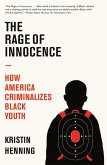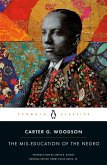Despite a decade of sociological research documenting black fathers' significant level of engagement with their children, stereotypes of black men as "deadbeat dads" still shape popular perceptions and scholarly discourse. In Fathering from the Margins, sociologist Aasha M. Abdill draws on four years of fieldwork in low-income, predominantly black Bedford-Stuyvesant, Brooklyn, to dispel these destructive assumptions. She considers the obstacles faced-and the strategies used-by black men with children.
Abdill presents qualitative and quantitative evidence that confirms the increasing presence of black fathers in their communities, arguing that changing social norms about gender roles in black families have shifted fathering behaviors. Black men in communities such as Bed-Stuy still face social and structural disadvantages, including disproportionate unemployment and incarceration, with significant implications for family life. Against this backdrop, black fathers attempt to reconcile contradictory beliefs about what makes one a good father and what makes one a respected man by developing different strategies for expressing affection and providing parental support. Black men's involvement with their children is affected by the attitudes of their peers, the media, and especially the women of their families and communities: from the grandmothers who often become gatekeepers to involvement in a child's life to the female-dominated sectors of childcare, primary school, and family-service provision. Abdill shows how supporting black men in their quest to be-and be seen as-family men is the key to securing not only their children's well-being but also their own.
Abdill presents qualitative and quantitative evidence that confirms the increasing presence of black fathers in their communities, arguing that changing social norms about gender roles in black families have shifted fathering behaviors. Black men in communities such as Bed-Stuy still face social and structural disadvantages, including disproportionate unemployment and incarceration, with significant implications for family life. Against this backdrop, black fathers attempt to reconcile contradictory beliefs about what makes one a good father and what makes one a respected man by developing different strategies for expressing affection and providing parental support. Black men's involvement with their children is affected by the attitudes of their peers, the media, and especially the women of their families and communities: from the grandmothers who often become gatekeepers to involvement in a child's life to the female-dominated sectors of childcare, primary school, and family-service provision. Abdill shows how supporting black men in their quest to be-and be seen as-family men is the key to securing not only their children's well-being but also their own.
Dieser Download kann aus rechtlichen Gründen nur mit Rechnungsadresse in A, D ausgeliefert werden.









